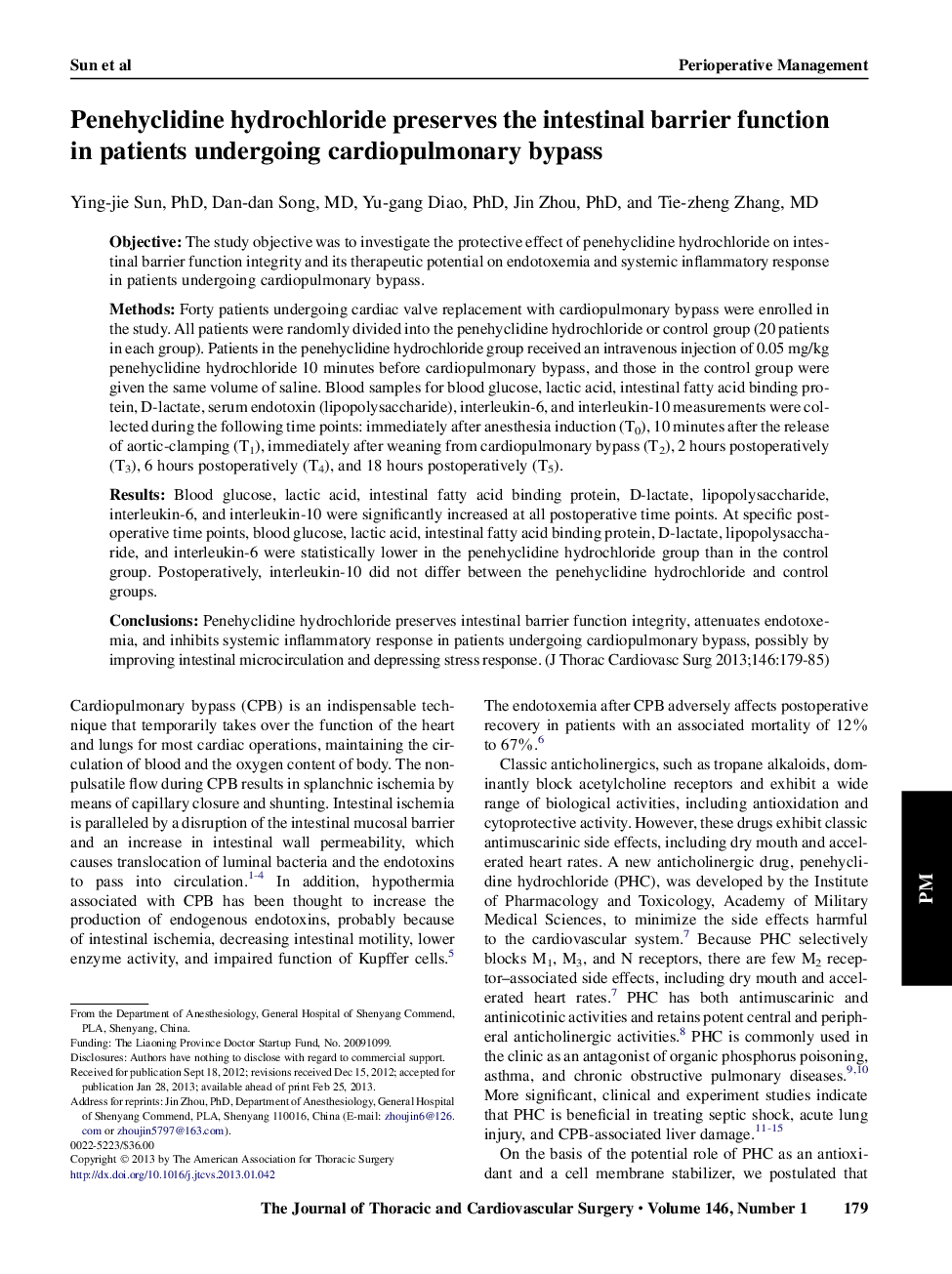| Article ID | Journal | Published Year | Pages | File Type |
|---|---|---|---|---|
| 2981053 | The Journal of Thoracic and Cardiovascular Surgery | 2013 | 7 Pages |
ObjectiveThe study objective was to investigate the protective effect of penehyclidine hydrochloride on intestinal barrier function integrity and its therapeutic potential on endotoxemia and systemic inflammatory response in patients undergoing cardiopulmonary bypass.MethodsForty patients undergoing cardiac valve replacement with cardiopulmonary bypass were enrolled in the study. All patients were randomly divided into the penehyclidine hydrochloride or control group (20 patients in each group). Patients in the penehyclidine hydrochloride group received an intravenous injection of 0.05 mg/kg penehyclidine hydrochloride 10 minutes before cardiopulmonary bypass, and those in the control group were given the same volume of saline. Blood samples for blood glucose, lactic acid, intestinal fatty acid binding protein, D-lactate, serum endotoxin (lipopolysaccharide), interleukin-6, and interleukin-10 measurements were collected during the following time points: immediately after anesthesia induction (T0), 10 minutes after the release of aortic-clamping (T1), immediately after weaning from cardiopulmonary bypass (T2), 2 hours postoperatively (T3), 6 hours postoperatively (T4), and 18 hours postoperatively (T5).ResultsBlood glucose, lactic acid, intestinal fatty acid binding protein, D-lactate, lipopolysaccharide, interleukin-6, and interleukin-10 were significantly increased at all postoperative time points. At specific postoperative time points, blood glucose, lactic acid, intestinal fatty acid binding protein, D-lactate, lipopolysaccharide, and interleukin-6 were statistically lower in the penehyclidine hydrochloride group than in the control group. Postoperatively, interleukin-10 did not differ between the penehyclidine hydrochloride and control groups.ConclusionsPenehyclidine hydrochloride preserves intestinal barrier function integrity, attenuates endotoxemia, and inhibits systemic inflammatory response in patients undergoing cardiopulmonary bypass, possibly by improving intestinal microcirculation and depressing stress response.
